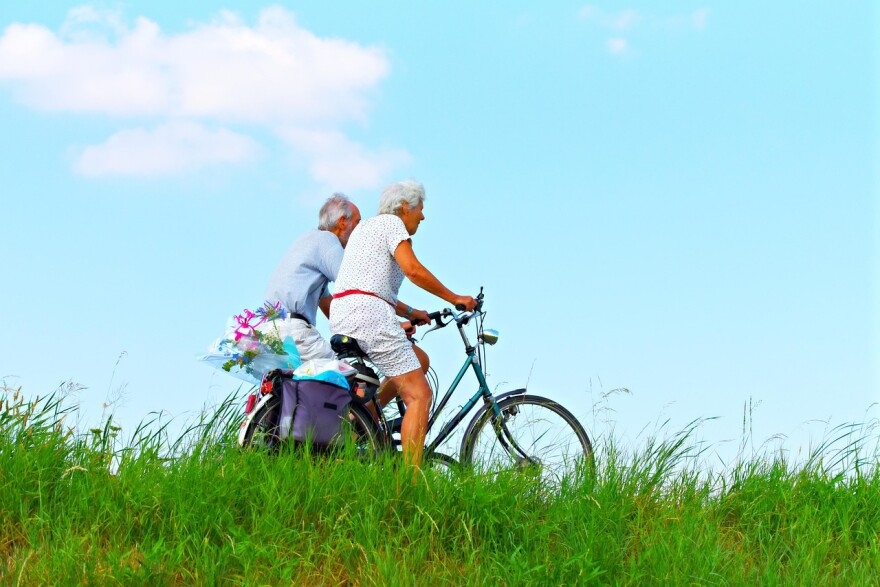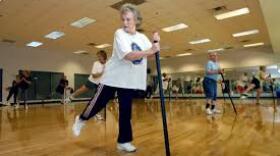Wisconsin has the highest death rate as a result of falls by older adults. It’s five times higher than the lowest state, according to a recent report by the CDC.
The data doesn’t make it clear why older adults in Wisconsin are more likely to die from slips and falls than those in other states.
As an Aging and Disability Resource Center Specialist for Oneida County, Jennifer Sackett has heard of all the different reasons an older adult has fallen.
“It could be vision loss. It could be not wearing good shoes, wearing slippers or flip flops, or something that doesn't have a back on them. There's bad, poor lighting. I mean, there's just tons and tons of reasons why people fall,” said Sackett.
With so many reasons, there’s not just one thing people can do to prevent slips and falls.
Sackett recommends first and foremost staying active. Doing balance and strength exercises can go a long way.
“They're not hard exercises. They're pretty easy. I do some of mine when I'm standing in line in the grocery store, just going up on my tippy toes and then back down,” said Sackett.
Then there’s fall proofing your home. This can include things like:
- Add grab bars in bathrooms
- Use non-skid mats or tape
- Have and use good lighting
- Put away or remove trip hazards
- Know where your pets and their toys are
- Avoid running cords across the floor
“Get rid of those throw rugs. I know people have heard it before, but it's really true. Get rid of the throw rugs,” said Sackett.
Sackett knows it can be hard for older adults to recognized that their bodies can’t do all things they once did.
She strongly encourages people that need them to use things like canes or walkers to maintain their balance or a grabber stick to avoid having to get on chair or ladder to grab things up high.
“It's not giving up. It's just being safe. If you're really don't have that balance and stability, it really is a good idea, because if you fall down and hurt yourself, break a hip, break a leg, it's going to lay you up for a long time. Some people don't ever really fully recover from that,” said Sackett.
It’s also a good idea to have a way to call for help if a person falls and can’t get back up, especially if they live alone or don’t have someone that regularly checks in.
Keeping a cell phone on them, having landline phones in several places that are reachable from the ground, or getting a PERS [Personal Emergency Response System are all options.
“There are people that fall and they are laying there for really days at a time,” said Sackett. “It's not a good situation, so wouldn't want anyone to have to go through that if they don't have to.”
ADRC offers an 8-week long fall prevention program called “Stepping On”. Its open to those 60 and older and is free, but accepts donations.
They bring in guest speakers from pharmacists to physical therapists, all focused on how to prevent falls.
Sackett says there will likely be one starting in October in Minocqua and another in Rhinelander in February. You can call the ADRC at 1-800-379-7499 to sign up.
There are also online resources available.
Support for local health coverage on WXPR is brought to you in part by a grant from the Rhinelander Health Foundation.






